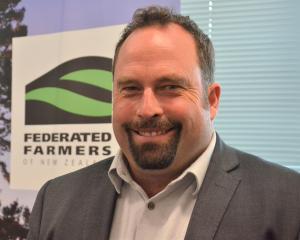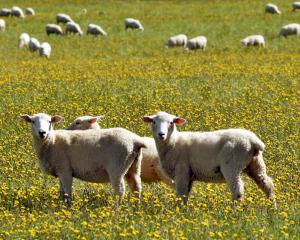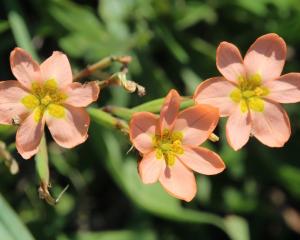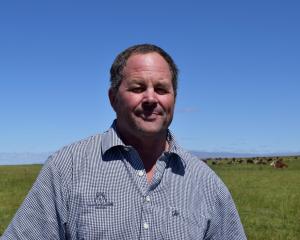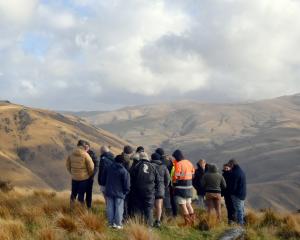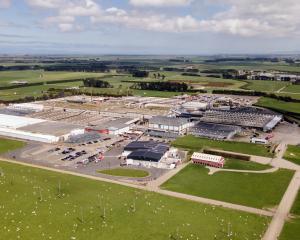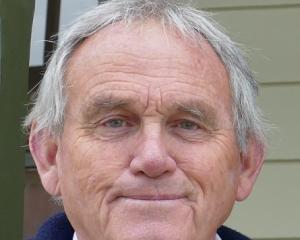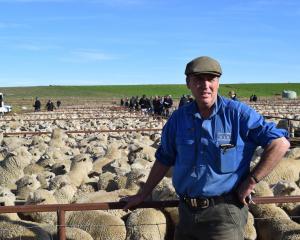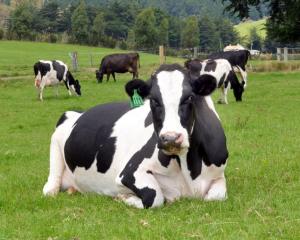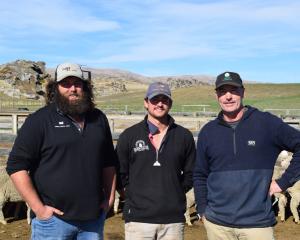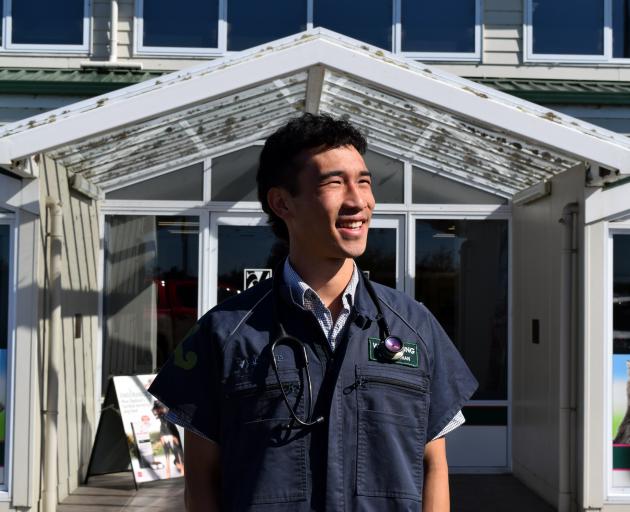
Shawn McAvinue talks to some of the latest recipients working in rural southern communities. This week we meet Clutha Vets Balclutha vet Wingyeung Szeto, 25, of Wellington.
Self-proclaimed townie Wingyeung Szeto wouldn’t want to launch his vet career anywhere other than a rural clinic.
The graduate vet, nicknamed Wing, started working at Clutha Vets clinic in Balclutha in April last year.
Born and raised in the suburbs of Wellington, he described himself as a townie.
At high school, he thought vets mostly worked on pets and wildlife.
His perception changed when he began studying veterinary science at Massey University in the five years up to the end of 2022.
As part of his study, he was placed in rural vet clinics from his third year of study and realised working with production animals and working dogs would be a "fun, interesting and rewarding career".
He had placements at Clutha Vets in Balclutha in 2021 and 2022.
The scheme, which would help pay some of his large student loan debt, was a "nice sweetener".
"It is a big help and I’m grateful it is around," he said.
However, he would have worked in a rural clinic if the scheme was never established because of the variety of work on offer.
A graduate vet had to work at a clinic for a minimum of three years to receive the first $33,000 of the scheme.
"The scheme wasn’t what drew me to here but it is a really nice to have and keeps you here for three years," he said.
What attracted him to Clutha Vets was wanting to work with a range of animals including cattle, sheep, deer, horses and companion animals and to be on call.
The clinic offered those opportunities.
"That is the primary reason I have come here — to learn the ropes in all sorts of things."
If he stayed in Wellington, he would need to travel to the Wairarapa or Horowhenua to secure "true farm work".
A memorable moment working in the South was being taught what to do when a cow’s stomach became twisted.
A cow was diagnosed by placing a stethoscope on the ribcage and flicking near the medical device with a finger to listen for an abnormal sound.
"You’ll hear a very distinct ping, like the sound of a basketball hitting concrete, or the sound of someone pissing in a can, a tinkle because the twisted stomach is filling up with gas and is up against the ribcage."
The diagnosis and surgery to fix the issue was rewarding because it helped the animal and the farmer to continue operate a business .
Another drawcard of working in South Otago was the lifestyle.
"I feel really blessed that being able to surf, dive and hunt is all on my doorstep. This is the best playground I’ve ever had," he said.


